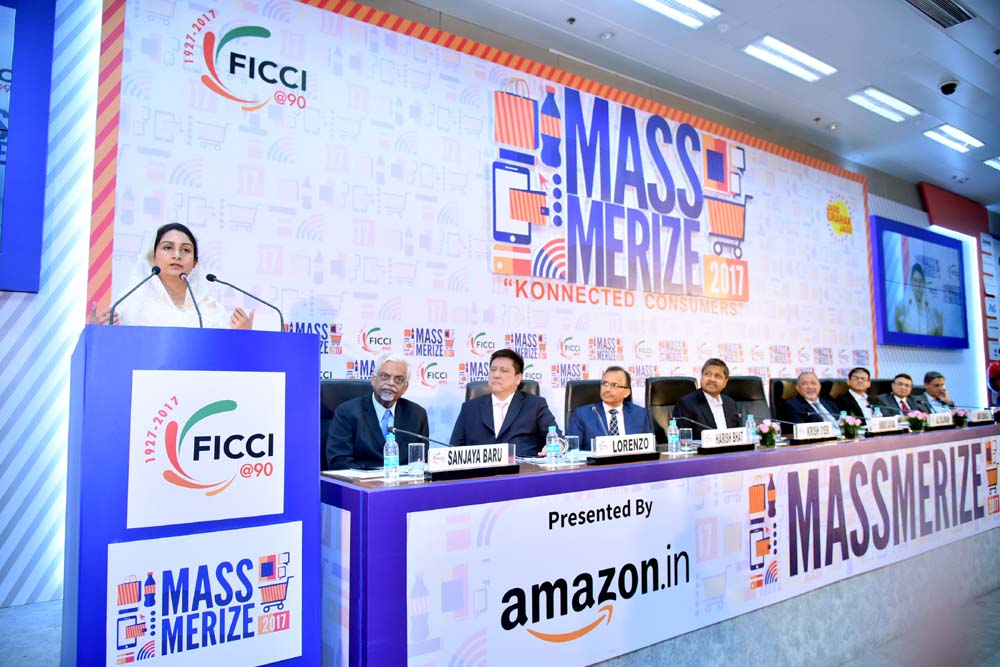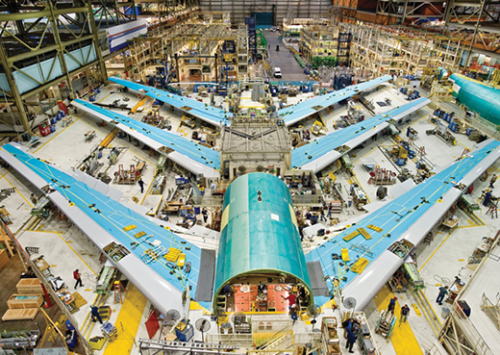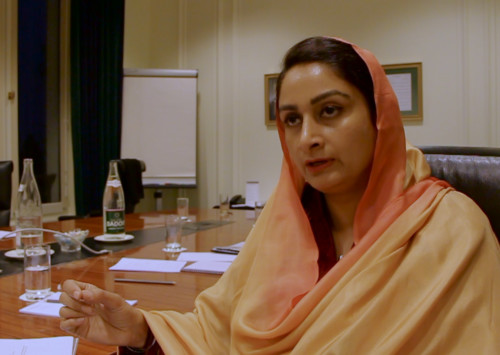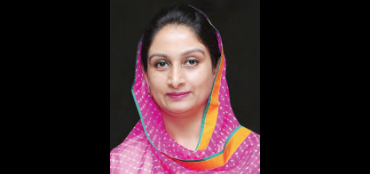Trends in retail, FMCG, e-commerce and food industry in India

‘Massmerize 2017’ on the theme ‘Konnected Consumers’ raised regulatory concerns and discussed upcoming market trends
As retail, FMCG, e-commerce and the food industry in India are witnessing remarkable growth and attracting foreign investments, each sector is rolling out new initiatives and coming in terms with contemporary trends.
With notable handouts towards the national Gross Domestic Product (GDP), attracting meaningful foreign investments and technologies, and generating employment opportunities, the retail, Fast Moving Consumer Goods (FMCG), and e-commerce sectors, have been significant contributors in the growth story of Indian economy.
The consumer market forms an integral part of the Indian retail industry with its present estimated size being more than INR 45 trillion and the retail sector projected to touch 700 billion dollar by 2020.
It is further expected to witness a Compound Annual Growth Rate (CAGR) of over 10 pc during 2016-21 to reach INR 85 trillion by 2021.
The e-commerce industry too is in a position to sustain itself. Driven by the increasing smartphone penetration and consumer wealth, it is expected to grow to USD 188 billion by 2025. With changing times, adaptability to both small and large e-commerce companies, selling provisions and food items, like Grofers, BigBasket, etc. is on a rise.
According to a report released on September 7 at the seventh edition of The Federation of Indian Chambers of Commerce and Industry’s (FICCI) retail, FMCG and e-Commerce conference – ‘Massmerize 2017’ on the theme ‘Konnected Consumers’, India is likely to become the fifth largest consumer market in the world by 2030. And, the FMCG market in India is not behind. The sector is likely to grow at a CAGR of 20.6 pc and is expected to reach 103.7 billion dollar by 2020 from 49 billion dollar last year.
Key challenges like poor basic infrastructure, complex multi-layer regulatory and taxation regime, remain.
The event that witnessed participation from entrepreneurs, corporate affairs professionals, retail, FMCG, and e-commerce professionals, government bodies, financial institutions and start-ups, raised regulatory concerns and discussed upcoming market trends.
According to Anshu Budhraja, CEO, Amway India, two mega trends that will define ‘connected’ consumers, are the rise of freelancer, which is generating a new cycle of innovation in retail and the massive digitisation across the country.
“Indians are increasingly accepting digital payment modes and it is happening organically because the private sector is moving digital and there are convenient ways in which consumers can now pay digitally. Also, because the government is proactively pushing this,” Abhijit Bose, CEO, Ezetap, told MIG.
At the event, Harsimrat Kaur Badal, Union Minister for Food Processing Industries, India, underlined the need for greater synergy between government and the industry to channelise efforts to reduce food wastage in the country and raise the quality and quantum of processed food, currently reckoned at 10 pc of farm produce.
She has urged industry to cash in on the advantages offered by mega food parks, all 42 of which will become functionable in the next three months.
The food-processing sector churns out 70 pc of the food products retailed in the country, and is one of the largest job generating industry as well as an important instrument in stabilising food process. The government has taken several steps to reduce food wastage, the latest reform being the roll out of the Goods and Services Tax (GST), which will remove roadblocks to transportation of food, including perishables.
World Food India exposition
The minister invited retailers, FMCG and e-commerce players to participate at the World Food India exposition slated to be held from November 3-5 this year at India Gate lawns in New Delhi. Industry professionals, representing the entire food supply chain, state governments and experts from 30 countries will have an opportunity to interact with top business leaders, government officials and delegates at the three day event. A highlight of the exposition would be a vibrant ‘Food Street’ where food product manufacturers from Indian and abroad would be able to test-market their wares and know at first-hand whether their products appealed to the Indian palate or not.
The ‘Yellow Book’
In a bid to beef up compliance and enforcement of safe, hygienic and nutritious supply of food to the people, the Food Safety and Standards Authority of India (FSSAI) is set to roll out a Food Safety Inspection and Sampling System.
According to Pawan Kumar Agarwal, CEO, FSSAI, new regulatory arrangement is being put in place to support the enforcement of regulations. There is still a huge challenge of meeting the rising expectations of the people who are now more conscious about health and wellness.
Moving towards ensuring the trust of the people in the food products available in the market, FSSAI has set out to create awareness among children on healthy eating habits by joining hands with educational boards in India like the CBSE and NCERT.
As part of broader plans, it has released the ‘Yellow Book’ aimed at detailing how to eat right. The book has been launched in three categories and for children in different age groups. It covers a range of topics – from food safety practices, personal hygiene and cleanliness habits and eating a balanced diet to packing a wholesome lunch-box. It also lays emphasis on preventing nutritional deficiencies and making healthy choices.














